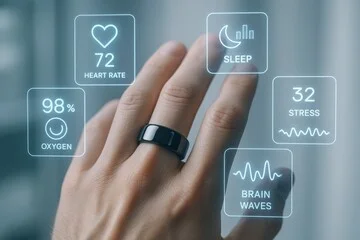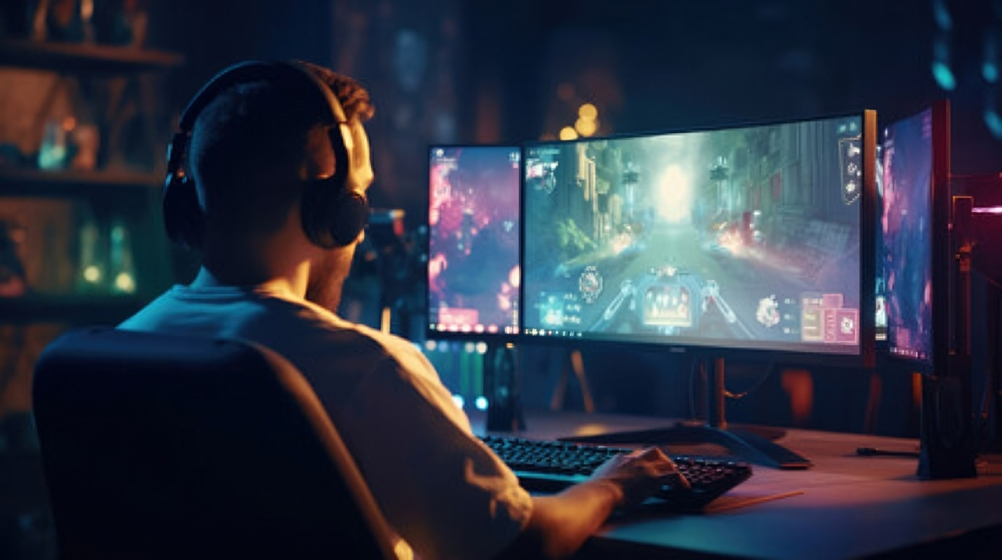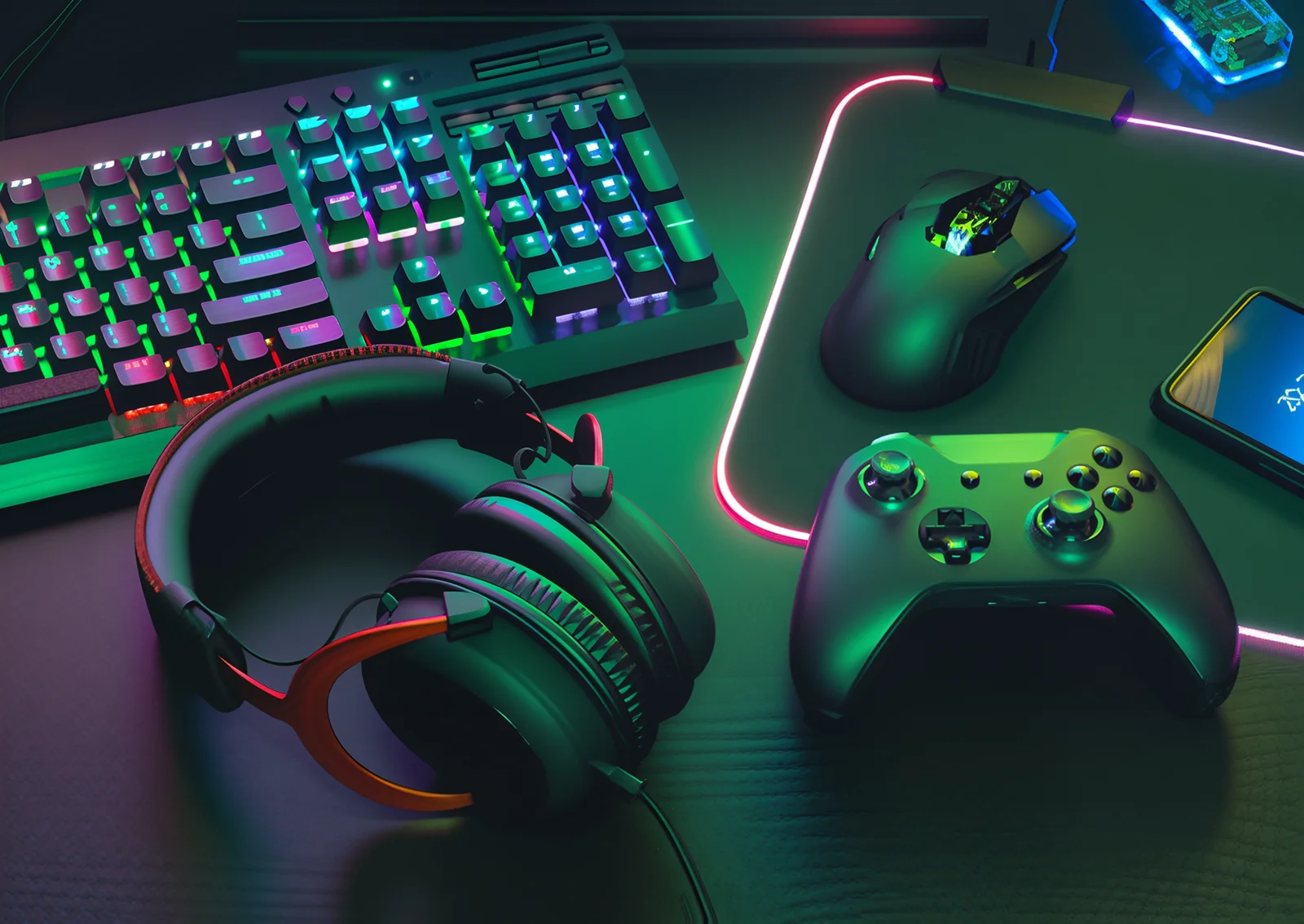
Gaming has grown from a simple hobby into a worldwide culture that touches millions of lives every day. People now spend hours exploring virtual worlds, solving puzzles, or competing against others. With so much time invested, it is natural to ask how gaming affects the brain bfnctutorials. The brain is highly adaptive, and games stimulate many parts of it at once. From boosting memory and attention to influencing emotions, gaming has multiple effects—both good and bad. By looking at these effects in detail, we can better understand how gaming interacts with the human brain and why it is such a powerful activity in modern life.
The Brain and Dopamine in Gaming
Whenever people play games, their brains release dopamine, a chemical tied to reward and pleasure. This release makes winning, achieving goals, or unlocking new levels feel satisfying. Over time, the brain associates gaming with enjoyment, which encourages players to continue. This process helps explain why games can feel addictive for some, while motivating for others. Scientists studying how gaming affects the brain bfnctutorials found that dopamine plays a central role in focus, motivation, and learning new tasks. It’s not just about fun—it’s also about how the brain trains itself to respond to challenges and rewards. Understanding dopamine’s role shows why games feel engaging and why balance is so important.
Attention and Focus Development
Video games demand continuous attention, whether you are tracking moving objects, following a storyline, or coordinating with teammates. Unlike passive activities such as watching TV, gaming pushes the brain to stay alert and responsive. This constant practice sharpens selective attention, meaning the ability to notice important details while ignoring distractions. People who play regularly often find it easier to concentrate on tasks outside games. Studies into how gaming affects the brain bfnctutorials highlight that attention control improves most in action-based games, where quick reactions are critical. This training effect is one reason many teachers and professionals are interested in using gaming to boost focus in education and workplace training.
Memory Skills and Brain Training
Another key impact of gaming is on memory. Many games require remembering complex maps, sequences, strategies, or the locations of hidden resources. This constant demand builds both short-term working memory and long-term recall. For example, players may need to remember puzzle solutions or past storylines to move forward. Such practice strengthens neural connections in the brain. Research into how gaming affects the brain bfnctutorials shows that gamers often score higher in memory-related tasks than non-gamers. These skills can carry over into daily life, from studying for exams to managing work projects. Essentially, games act like brain workouts, challenging players to store and recall information in dynamic situations.
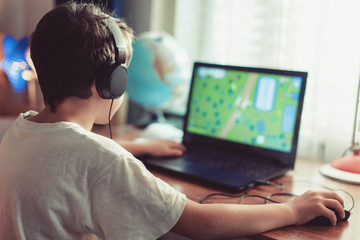
Decision-Making Under Pressure
Gaming frequently puts players in situations where they must make rapid choices under pressure. Whether deciding to attack, defend, or retreat, players constantly weigh risks and rewards. This process strengthens the brain’s decision-making centers, particularly in the prefrontal cortex. The more often people practice making quick decisions in games, the more confident and accurate they become in real-world choices. When exploring how gaming affects the brain bfnctutorials, researchers found that this benefit applies to multitasking, problem-solving, and even time management. By training the brain to respond quickly and effectively, gaming offers a unique way to develop valuable skills that extend far beyond entertainment.
Boost in Spatial Skills
Many games involve navigating complex three-dimensional environments. From finding paths in adventure games to planning strategies in simulation titles, these activities improve spatial reasoning. Spatial skills are the ability to visualize and mentally manipulate objects, which are important in many real-world tasks like reading maps, driving, architecture, and even surgery. Research on how gaming affects the brain bfnctutorials shows that regular players develop sharper spatial awareness and navigation abilities. This explains why many training programs, including those for pilots and surgeons, use simulation-based games to prepare professionals for demanding environments. Gaming, therefore, is not just about fun; it also helps sharpen the brain’s ability to understand and interact with physical space.
Creativity and Imagination Growth
Gaming also plays a big role in boosting creativity. Many modern games, especially sandbox or building games, give players tools to design, experiment, and innovate. By exploring these open-ended environments, players stimulate their imagination and creativity. For example, designing structures in Minecraft or creating strategies in role-playing games requires original thinking. Studies into how gaming affects the brain bfnctutorials suggest that these activities enhance creative problem-solving and innovative thinking. In daily life, this translates to improved brainstorming skills and the ability to find unique solutions to challenges. Far from limiting imagination, gaming often expands the boundaries of what players believe they can create or achieve.
Emotional Regulation and Stress Relief
Another important aspect is how gaming influences emotions. Many people turn to gaming as a way to relax, unwind, and escape daily stress. Immersive games provide a sense of control and achievement, which reduces anxiety and lifts mood. Gaming can even help people deal with frustration by offering safe spaces to manage challenges. Research into how gaming affects the brain bfnctutorials shows that players often experience lower stress levels after gaming sessions. However, balance is important, because too much gaming can lead to emotional dependency. When used wisely, gaming serves as an effective tool for regulating emotions and maintaining mental health.
Social Benefits of Multiplayer Games
Multiplayer games have changed how people connect with each other. Instead of playing alone, many players now join online communities, team up with friends, or compete globally. These interactions build teamwork, communication, and cooperation skills. Social connections also release oxytocin, the bonding hormone, strengthening positive relationships. Research into how gaming affects the brain bfnctutorials shows that these interactions improve social skills and resilience. Even handling conflicts or defeats online teaches valuable lessons about patience and empathy. For many, gaming is not only entertainment but also a way to stay socially active and build meaningful friendships in digital spaces.
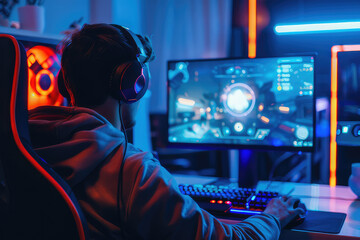
Negative Effects of Excessive Gaming
While gaming offers many benefits, too much of it can cause problems. Excessive gaming overstimulates the brain’s reward system, making everyday activities feel less exciting. It can lead to fatigue, reduced productivity, and social isolation. Researchers studying how gaming affects the brain bfnctutorials warn that overuse may disrupt balance, causing harm instead of growth. This is especially true when gaming replaces important activities like exercise, sleep, or face-to-face interaction. Recognizing the signs of excessive gaming is essential to maintain a healthy relationship with games. Moderation ensures players enjoy benefits without falling into harmful patterns.
Gaming Addiction Explained
Addiction occurs when gaming becomes a compulsive behavior that people struggle to control. In this case, the brain’s dopamine pathways become overstimulated, leading to cravings and reduced sensitivity to rewards. Over time, players need to game more to feel the same level of satisfaction. Brain scans show that gaming addiction shares similarities with substance abuse disorders. This is a critical part of how gaming affects the brain bfnctutorials. Addiction impacts focus, sleep, and relationships, making balance extremely important. Families and individuals must be aware of warning signs like neglecting responsibilities or losing interest in other activities.
Impact on Sleep and Mental Health
Another downside is the impact on sleep. Many gamers stay up late, losing valuable rest hours. The bright light from screens and the mental excitement of gaming delay melatonin production, which makes it harder to fall asleep. Poor sleep then affects mood, concentration, and overall health. Research into how gaming affects the brain bfnctutorials highlights the connection between late-night gaming and fatigue. Without healthy sleep, even the brain’s positive adaptations from gaming weaken. Therefore, setting boundaries on gaming time is key to maintaining good mental and physical health. Balanced gaming leads to stronger benefits without harming natural rest cycles.
Violence and Aggression Concerns
One of the most debated topics is whether violent games increase aggression. Some studies suggest that repeated exposure to violent content may desensitize emotional responses, while others show no lasting harm. What’s clear is that content type, personal temperament, and social environment all play roles. Researchers exploring how gaming affects the brain bfnctutorials note that not every player reacts the same way. For some, violent games are simply entertainment, while for others, they may influence behavior. The safest approach is to monitor content and ensure that gaming remains balanced, especially for younger players, to avoid negative emotional impact.
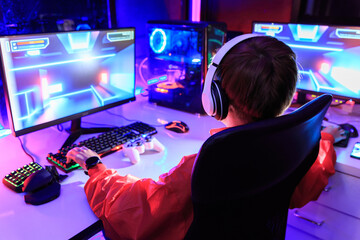
Education and Learning Benefits
Educational games combine fun with learning, making difficult subjects more engaging. Students who play these games often show improved problem-solving, memory, and collaboration skills. Teachers use gamification, which means adding game-like elements to learning, to increase participation. This shows another way how gaming affects the brain bfnctutorials positively. When learning feels like play, students are more motivated and retain information better. From language learning apps to math-based games, education and gaming increasingly overlap, proving that games can be powerful teaching tools. This demonstrates how carefully designed games can transform learning environments for students of all ages.
Professional Skill Development
Gaming skills also apply in professional fields. Surgeons, pilots, and military personnel use simulation-based games to practice real-world scenarios. These games help train attention, precision, and decision-making under pressure. Research into how gaming affects the brain bfnctutorials shows that professionals benefit from this training because it replicates high-risk environments without real danger. Even in business, strategy games teach planning and resource management. By building transferable skills, gaming demonstrates value beyond entertainment. This is why many organizations now consider gaming experience as a way to prepare for careers requiring focus, coordination, and quick thinking.
Virtual Reality and Augmented Reality
Virtual reality (VR) and augmented reality (AR) have taken gaming to new levels. These technologies engage multiple senses and blend physical movement with mental challenges. Players not only think but also move, improving coordination and spatial awareness. Studies into how gaming affects the brain bfnctutorials show that VR games can aid rehabilitation for patients recovering from injuries. Immersive environments stimulate the brain more intensely than traditional games, opening new possibilities in therapy, education, and training. As VR and AR grow, their impact on the brain will continue to expand, reshaping how we use gaming in everyday life.
Gaming in Therapy and Mental Health
Therapists are now using games as tools to treat mental health issues such as depression, anxiety, and PTSD. Games offer controlled spaces where patients can safely face challenges and practice coping skills. For example, relaxing games can reduce anxiety, while problem-solving games boost confidence. Research on how gaming affects the brain bfnctutorials highlights the therapeutic potential of gaming for recovery. By combining fun with therapy, gaming provides a less intimidating approach to treatment. This shows that games can play a positive role in healing, not just entertainment, and their value in mental health continues to grow.
Balancing Benefits and Risks
The most important lesson is balance. Moderate gaming improves focus, memory, creativity, and emotional health. Too much gaming, however, risks addiction, fatigue, and social isolation. Research into how gaming affects the brain bfnctutorials consistently shows that gaming is neither fully good nor fully bad—it depends on how it is used. Players should set healthy limits, choose content wisely, and integrate gaming with other life activities. By doing so, they can enjoy the benefits without experiencing the drawbacks. This balance ensures that gaming remains a positive and enriching part of life.
Conclusion
Gaming is a powerful force that influences the brain in many ways. It can sharpen memory, improve focus, boost creativity, and provide emotional relief. At the same time, overuse can lead to addiction, poor sleep, or aggression concerns. The real insight is that balance creates the best outcome. Understanding how gaming affects the brain bfnctutorials helps players, parents, and educators make informed choices. With mindful use, gaming can be a tool for growth, connection, and even therapy. By combining fun with awareness, players can unlock the true potential of gaming in their lives.
FAQs
Q1: Is gaming good or bad for the brain?
Gaming can be both good and bad. It improves focus, memory, and problem-solving, but too much gaming may cause addiction, poor sleep, or reduced productivity.
Q2: How does gaming affect children’s brains?
Children benefit from improved learning and creativity, but they are more vulnerable to addiction and overstimulation, so moderation is important.
Q3: Can gaming help mental health?
Yes, when balanced, gaming reduces stress, improves mood, and is even used in therapy for anxiety, depression, and PTSD.
Q4: Do violent games make people aggressive?
Research is mixed. Some players show desensitization, while others are unaffected. Personality and environment play a big role.
Q5: How much gaming is healthy daily?
Experts recommend 1–2 hours per day for children and moderation for adults. Regular breaks and balance with other activities are essential.
Read also: How kl7cjnsb8fb162068 Impacts Technology and Users


